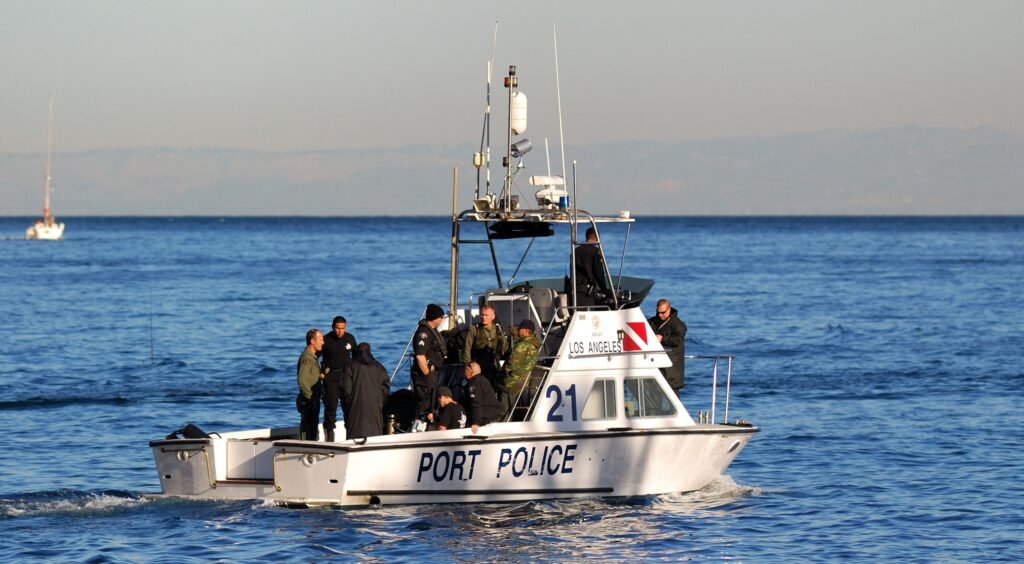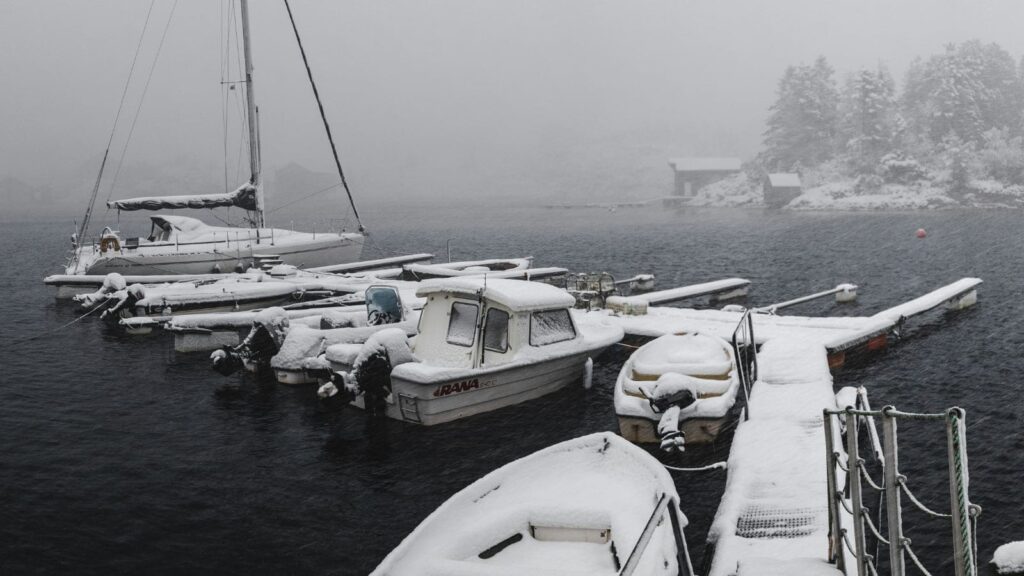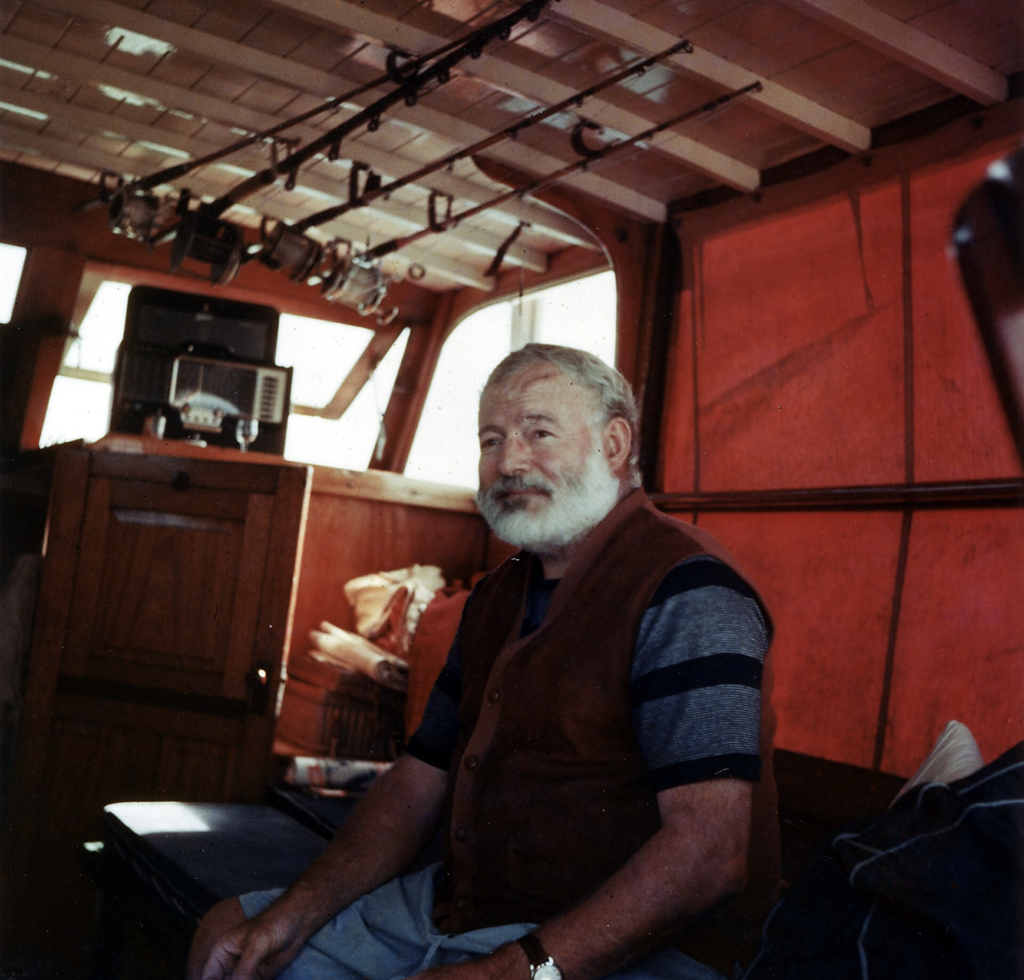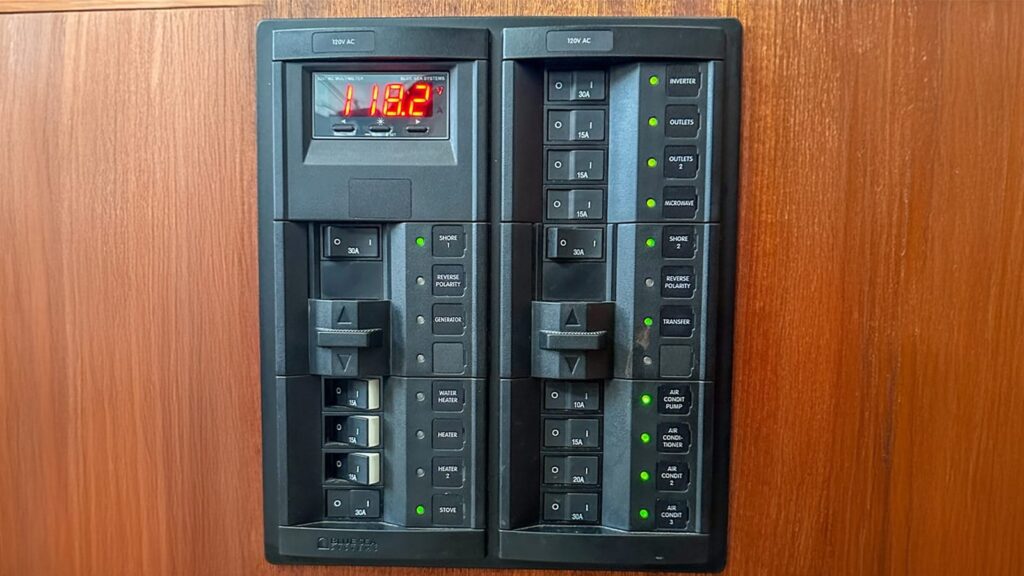I’ve Just Been Pulled Over – What Do I Do?

BY WAYNE SPIVAK, US COAST GUARD AUXILIARY
You’re driving along on the highway and you see those familiar bright, flashing lights behind you. Your heart sinks as you realize the patrol car is following you. You hear the officer over his PA speaker telling you to pull over. Yup, you were snagged – for speeding.
Remember what the person who taught you how to drive told you about getting pulled over? Keep your hands on the wheel, at 10 and 2. Have the other occupants sit with their hands in plain view, and quietly.
Be nice to the officer, give the officer the documentation they want, and if you’re lucky, because you’re nice, they will be nice to you.
Well, we’re now on the water, zipping along, jumping wakes or speeding in a 5mph zone and all of a sudden…. Guess what?! You hear a siren and see those familiar blue lights (blue is the only color that signifies an emergency vessel on the water). What do you do?
Well, the officers, be they local, harbor patrol, state police, or Coast Guard, will ask you to heave to. This means, stop your vessel! Ask them if they want you to cut your engine and drop an anchor.
Take out some fenders (even though most law enforcement vessels will have their own handy) so they can tie-up.
Now what do you do? Well, if you took a safe boating course in the last several years, some of the information you got about stopping and boarding a vessel has changed. In years gone by, the only agency that could stop your vessel and board it without a search warrant was the Coast Guard. Well, this isn’t exactly so anymore.
Several states have signed compacts with the Coast Guard in this post-9/11 environment, where the Coast Guard has delegated some of their federal powers to the state. Specifically, they now allow state law enforcement (and those state powers flow down to the local law enforcement officers) to board vessels.
So, now that we know that the likelihood is that the non-Coast Guard officer is likely allowed to board our vessel (check with your state), what do you as the vessel captain do? The same exact things as if you are driving a car.
You keep your hands where they can be seen. You assemble your crew and guests above decks so law enforcement knows where everyone is and how many persons are on board.
You provide the documentation requested and know that a vessel safety equipment check will be done. This will be the same vessel safety check the Coast Guard Auxiliary provides for FREE, and without penalty. But this time, the law enforcement officials will do it for you; with penalty should you not pass!
Should you fail the vessel safety equipment check, unlike the Auxiliary Vessel Safety Check (VSC), where we told you what you needed and asked that you immediately correct the situation, the law enforcement official has several modalities they can pursue.
- They can issue you a warning (boy – you were lucky!).
- They can issue you a ticket (ok, not so lucky).
- They can issue a “termination of voyage” order, which means you will need to turn around and return to your most recent place of embarkation. Any and all violations will need to be cured (fixed) before your voyage can continue.
Next on the hit parade are tickets and/or more severe penalties for the offense that caused you to be boarded in the first place (like speeding).
So, how do you not get boarded? Follow the local laws, the Rules of the Road, and get a Vessel Safety Check by the Coast Guard Auxiliary (see http://cgaux.org/vsc) or one of the partners in the VSC program, before you get pulled over. Be forewarned that the Coast Guard and other law enforcement agencies do have safety check stops.
But, should the Coast Guard see your VSC sticker on your port side window, more than likely they will either do a perfunctory check or let you continue on your voyage. Why? Because you have taken the time to get that VSC, passed the VSC, and are more likely to keep or have all the required safety equipment on board. Another great reason to have a VSC this season!
So, let’s run through the rules if you get stopped once again:
- Heave-to
- Have all passengers and crew topside
- Be quiet and courteous
- Cooperate
- Be safe on the water; wear your Personal Flotation Device (PFD)




